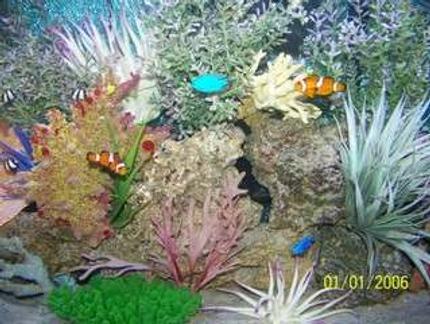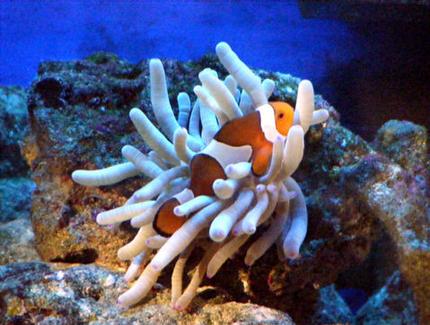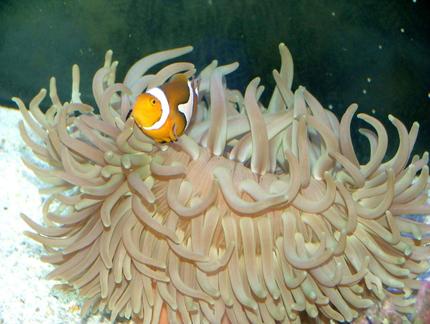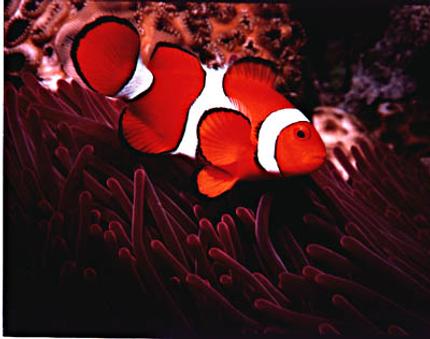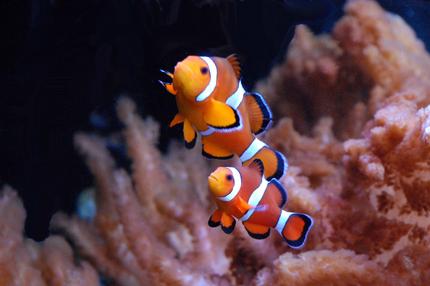Clownfish Information & Care
| Back to Saltwater Aquarium Fish Species | |
|---|---|
| Fish Type | Species suitable for beginners |
| Common Name | Clownfish |
| Scientific Name | Amphiprion Percula |
| Description |
The Clownfish, or Anemonefish, are a subfamily of the family Pomacentridae. There are currently 27 species, of which one is in the genus Premnas and the rest are in the genus Amphiprion. Clownfish are native to wide ranges of the warm waters of the Pacific; some species ranges overlap others. Clownfish are not found in the Atlantic. Clownfish live in a mutual relationship with sea anemones. Once an anemone has been adopted, the clownfish will defend it vigorously. However, clownfish in an aquarium environment can exist very well without an anemone.extremely difficult to keep alive even for.To avoid the stings of their host anemones clown fish have secretory cells producing a layer of mucus on their bodies. The mucus is based on sugar rather than proteins so anemones fail to recognize the fish as food and do not fire their nematocysts, or sting cells. Clownfish are among the few marine fish that can be bred in captivity in commercially-viable quantities at the time of this writing. Hobbyists are advised to purchase captive-born clownfish whenever possible. The Amphiprions are attractive in colour and usually wear bright colours. Example: orange, black, and white.They are friendly and easy to feed. They adapt well in captivity and can be easily studied for scientific research. These warm water fish have a higher metabolism which makes them more active than the cold-water fish. Clownfish lay eggs on any flat surface close to or under protection of their host anemones. These eggs are cared for by the male and hatched under complete darkness after a period of 7 to 10 days. Hatching occurs in a natural rhythm directly connected to the phases of the moon. Clownfish are omnivorous, their diets range from flakes to meat. They feed mostly on copepods and mysids, the undigested excrement from their host anemones. Clownfish are relatively small organisms, fish in aquaria can grow to 9 cm (3.5 inches) in length, fish in the wild can grow to a length of 12 cm (5 inches). From wikipedia.org |

